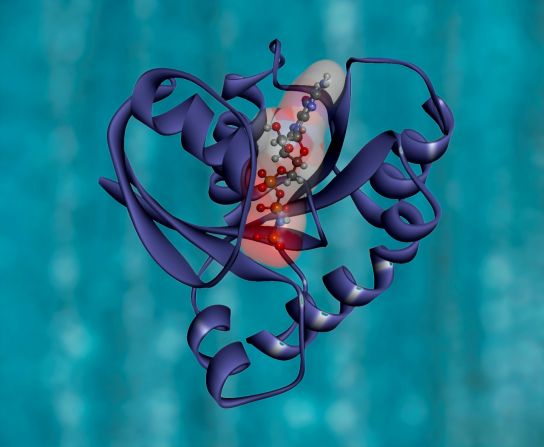Scientists have long suspected that mutations in the cholesterol transporter ABCA13 in cells are linked to mental illness, but it has been difficult to prove this or to determine how it occurs.Now, in a new study, researchers from Kyoto University and other institutions have provided evidence that mice with ABCA13 protein destruction exhibit the characteristic behavior of schizophrenia.They studied the function of ABCA13 and published their research results in the Journal of Biological Chemistry, with the title "ABCA13 dysfunction associated with psychiatric disorders causes impair trafficking".Corresponding author is Kazumitsu Ueda of the Institute of Integrated Cellular Materials Science, Kyoto University.

ABCA13 belongs to a family of cellular transporters called ATP-binding box (ABC) proteins that are involved in moving cholesterol and other molecules into and out of cells.Ueda and his team have been studying THE ABC protein for 35 years, giving them an extra edge to discover the mysterious role of ABCA13, suspected to be the largest in the protein family.
The Ueda team studied ABCA13 in different types of human cells.They also turned off the gene that encodes the protein in the mice.Finally, they studied the effects of a mutant ABCA13 protein in human cells.They found that ABCA13 is a large protein located in cell vesicles and helps transport cholesterol from cell membranes to these vesicles."We found that ABCA13 accelerates the internalization of cholesterol in cells, and its loss of function is associated with the pathophysiology of some psychiatric disorders," Ueda said.
Mice lacking ABCA13 looked normal and lived a normal life.But a series of behavioral surveys showed abnormalities in the Startle Response and Prepulse inhibition tests.Under normal circumstances, a weak pre-pulse stimulus, such as sound, can reduce the sensation of being startled by a stronger stimulus that follows.However, some people with mental illness can still feel scared even if they experience a pre-pulse before a major stimulus.They found that both normal mice and abCA13-deficient mice had normal startle responses.But only abCA13-deficient mice were startled if they had a pre-pulse before the shock.
The Ueda team further wanted to know how the loss of ABCA1 affects nerve cells in the brain.They found that the vesicles in the nerve endings of abCA1-deficient mice did not accumulate cholesterol.They say synaptic vesicles are essential for the transmission of information across different nerves, so such dysfunction could lead to the pathophysiology of mental illness.
Finally, the Ueda team looked at human cells containing a mutant version of ABCA13 that is thought to be associated with some mental illnesses.They found that these mutations impaired the function of ABCA13 and its ability to locate cells within vesicles.Further research into the function of ABCA13 may lead to the development of novel treatment strategies for mental disorders such as schizophrenia, bipolar disorder and major depression, the Ueda team notes.

 115
115





 折扣:
折扣: